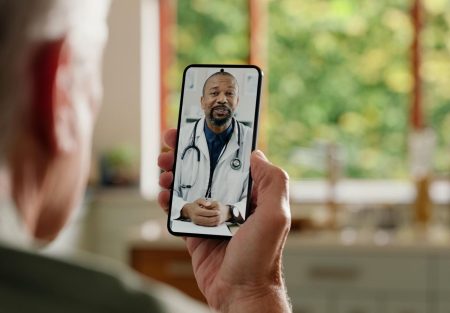By now, it’s well established that artificial intelligence is reshaping today’s and tomorrow’s jobs. But to what extent?
Almost half (46%) of skills in typical US job postings may be subject to “hybrid transformation” by genAI, a study released by Indeed shows. “Human oversight will remain critical when applying these skills, but genAI can already perform a significant portion of routine work,” the study’s authors suggest. Factors affecting these predictions “will depend on how quickly businesses adopt genAI, and how well workers adapt and reskill,” they add.
Ironically, the creators and implementers of AI systems are those most likely to see the impact of the AI they create. Information technology occupations, especially software development, are more highly exposed, the report shows. At the opposite extreme. roles requiring more physical presence and human interaction, including nursing, are likely to be less impacted. GenAI may reshape administrative tasks, such as healthcare billing and scheduling, but that’s it.
A large majority (81%) of skills mentioned in the typical software development job posting fall into the hybrid transformation classifications. By contrast, two-thirds (68%) of listed skills in the typical nursing job posting fall into the minimal transformation category.
Then there are jobs likely to be fully replaced by AI – still a small minority, but showing signs of AI creeping in. Last year’s Indeed survey found no skills would be fully replaced by genAI. Now, that percentage has bumped to at least 19 skills (0.7% of all skills analyzed) that are “very likely” to be fully replaced by genAI. “Still small in absolute terms, but a significant signal of progress,” the study’s authors stated.
Top jobs most open to AI hybrid transformation include the following (percent exposed to potential transformation)
Software development 81%
Data and analytics 79%
Accounting 74%
IT infrastructure 71%
IT systems 70%
Insurance 70%
Banking & finance 70%
Marketing 69%
Administrative assistance 67%
Customer service 66%
Top jobs least likely to be affected by AI hybrid transformation include the following:’
Childcare 21%
Nursing 25%
Construction 25%
Driving 28%
Personal care/home health 30%
Production and manufacturing 31%
Veterinary 31%
Installation and maintenance 31%
Food preparation and service 33%
Physicians and surgeons 36%
The high vulnerability of software and IT jobs is due to the routine, repeatable, and information-based aspects of coding – including providing explanations, code samples, debugging help, and architectural advice. “This could mean that as genAI takes over routine coding tasks, human developers will shift from ‘doing the work’ to ‘directing the work,’” the Indeed authors state. “In nine out of the top 10 skill families most commonly found in software development jobs, genAI can now potentially lead the process while humans validate, refine, and contextualize outputs.”
Another industry report has taken a deeper dive into the impact of AI on information technology jobs. The impact is already substantial, the report out of Google Cloud’s DORA initiative – DevOps Research and Assessment group.
While the report focused on software developers, there are implications across many professions – namely, breaks in the generational chains that form workforces.
“It’s about transmitting tacit knowledge that’s hard to document,” wrote Matt Beane, Ph.D., associate professor at the University of California, Santa Barbara and digital fellow at Stanford and MIT in the DORA report. “Across more than 31 occupations, default use of intelligent automation changes traditional apprenticeship models, leaving fewer opportunities for novices to engage in the hands-on work essential for their development.”
At its best, “the three-generation model— junior, mid-level, senior—helps developers gain skills from joint problem-solving, not formal training. We need to investigate the effects of AI deployment on this taken-for-granted process.”
AI is being developed and deployed “at unprecedented speed,” he continued. “And we don’t know how human capabilities will adapt to these changes. Instead, many are focused on measuring AI-related productivity.” An effect of AI adoption is it is “blocking skill development for most devs. To keep our innovative edge – both individually and collectively – we need to use AI itself to measure skill development and productivity simultaneously.”
This means accelerating training to help professionals adapt to this fast-changing world. “Suppose the fastest you’ve ever traveled is walking at four miles per hour, and someone asks you to drive a car at 50 miles per hour,” wrote Gene Kim, researcher and co-author of Vibe Coding. “Without practice and training, you will undoubtedly wreck the car. We concluded that when AI dramatically accelerates software development, our control systems – that’s us – must also speed up.”
This calls for “fast feedback loops – faster than ever – to match accelerated code generation,” Kim urged. “We need a climate for learning, especially given the idiosyncratic nature of AI and its rapid rate of advance.”
Read the full article here









